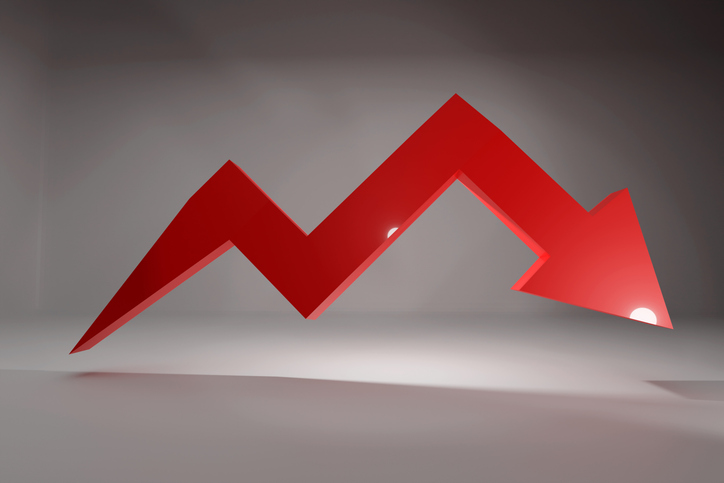In Praise of Wal-Mart
For millions of people, Wal-Mart is a lifesaver that provides what they want at prices they can afford.

Profit and prosper with the best of Kiplinger's advice on investing, taxes, retirement, personal finance and much more. Delivered daily. Enter your email in the box and click Sign Me Up.
You are now subscribed
Your newsletter sign-up was successful
Want to add more newsletters?

Delivered daily
Kiplinger Today
Profit and prosper with the best of Kiplinger's advice on investing, taxes, retirement, personal finance and much more delivered daily. Smart money moves start here.

Sent five days a week
Kiplinger A Step Ahead
Get practical help to make better financial decisions in your everyday life, from spending to savings on top deals.

Delivered daily
Kiplinger Closing Bell
Get today's biggest financial and investing headlines delivered to your inbox every day the U.S. stock market is open.

Sent twice a week
Kiplinger Adviser Intel
Financial pros across the country share best practices and fresh tactics to preserve and grow your wealth.

Delivered weekly
Kiplinger Tax Tips
Trim your federal and state tax bills with practical tax-planning and tax-cutting strategies.

Sent twice a week
Kiplinger Retirement Tips
Your twice-a-week guide to planning and enjoying a financially secure and richly rewarding retirement

Sent bimonthly.
Kiplinger Adviser Angle
Insights for advisers, wealth managers and other financial professionals.

Sent twice a week
Kiplinger Investing Weekly
Your twice-a-week roundup of promising stocks, funds, companies and industries you should consider, ones you should avoid, and why.

Sent weekly for six weeks
Kiplinger Invest for Retirement
Your step-by-step six-part series on how to invest for retirement, from devising a successful strategy to exactly which investments to choose.
Wal-Mart is certainly a company that merits superlatives. It is the world's largest retailer, with more than 4,000 stores in the U.S. and nearly 2,300 abroad. Annual sales exceed $330 billion, a figure larger than the gross domestic product of all but 20 nations. Wal-Mart is the largest private employer in the U.S. and the second-largest employer overall, behind only the federal government. Its 1.3 million domestic workers would more than fill all of the ballparks in the major leagues, and the number of shoppers over a two-week period exceeds the population of the U.S.
But few companies arouse as much passion as Wal-Mart. Critics contend that the company treats its workers badly, denies them benefits and buys its products from sweatshops in developing countries. Criticism of the company mounted after author Barbara Ehrenreich went underground to "expose" Wal-Mart in her 2001 bestseller, Nickel and Dimed. On top of this, some urban scholars blame big-box retailers in general, and Wal-Mart in particular, for putting mom-and-pop stores out of business, hastening the decline of downtowns and depersonalizing the shopping experience. Attacks on Wal-Mart almost surely contribute to its share price being lower than it ought to be. (Read Kiplinger's recent coverage of Wal-Mart and an outlook from KiplingerForecasts.com. Plus, see Kiplinger's stock picks for 2007.)
| Row 0 - Cell 0 | Latest Stock Coverage |
| Row 1 - Cell 0 | Become a Better Investor |
| Row 2 - Cell 0 | 8 Stocks to Own in 2007 |
| Row 3 - Cell 0 | Special Section for Baby-Boomers |
A different picture
But when I examine the facts surrounding Wal-Mart, a very different -- and far more favorable -- picture of the company emerges. For millions of people, Wal-Mart is a lifesaver that provides what they want at prices they can afford.
From just $107.88 $24.99 for Kiplinger Personal Finance
Become a smarter, better informed investor. Subscribe from just $107.88 $24.99, plus get up to 4 Special Issues

Sign up for Kiplinger’s Free Newsletters
Profit and prosper with the best of expert advice on investing, taxes, retirement, personal finance and more - straight to your e-mail.
Profit and prosper with the best of expert advice - straight to your e-mail.
I'm not saying that Wal-Mart is without fault. No large employer is. But if jobs at Wal-Mart are as bad as critics assert, why is it that 25,000 people applied last January for 325 job openings at the company's new store in the Chicago area? This huge rush to get jobs at Wal-Mart is not because there are no jobs elsewhere. The current unemployment rate of 4.4% is well below recent levels and has been lower in only four of the past 35 years. Applicants want these jobs because Wal-Mart pays more than $10 an hour, on average, which is considerably higher than the U.S. and state minimum-wage rates, whether or not you include benefits in the calculation.
And although Wal-Mart workers lacked benefits in the past, this is changing. The company now offers as many as 18 health-care plans for as little as $11 a month in many locations. But critics would like to force Wal-Mart to pay even higher wages and offer even more benefits. Recently, the Chicago City Council voted to hold Wal-Mart and other large store operators to higher wage standards than other employers in the city.
Fortunately, Mayor Richard Daley vetoed the Wal-Mart bill. This type of legislation sends the wrong message to prospective employers -- namely, "We will penalize you for being a large, efficiently run company that offers consumers the lowest prices." Would Chicago prefer less-efficient companies with higher prices and fewer jobs? That would have been the outcome had the bill become law.
Impact on prices
Studies have shown that Wal-Mart's prices have a huge impact on consumers' purchasing power. Global Insight, an international research firm, found that Wal-Mart's growth between 1985 and 2004 resulted in food-at-home prices that were 9.1% lower and overall prices (as measured by the consumer price index) that were 3.1% lower than they would otherwise have been.
These findings are stunning. Jerry Hausman and Ephraim Leibtag published a working paper for the National Bureau of Economic Research in 2004 titled "CPI Bias From Supercenters: Does the BLS [Bureau of Labor Statistics] Know That Wal-Mart Exists?" In it they showed that the BLS's inflation measure for food bought for home use is too high by about 0.32 to 0.42 percentage point per year because the agency improperly accounts for Wal-Mart's low prices, a mistake that leads to an upward bias in the overall inflation rate of about 15% per year. (In other words, if the government is reporting annual inflation of 3.45%, the real figure is closer to 3%.) No other company makes such a favorable impact on such an important statistic.
(This year, Wal-Mart rolled out a headline-making generic-drug program. Read more about trends in generic drugs.)
On the international front, those who criticize Wal-Mart for encouraging "sweatshops" in the developing world also fail to see the big picture. John Tierney, a columnist for the New York Times, recently wrote that Wal-Mart is as deserving of the Nobel Peace Prize as are Bangladeshi economist Muhammad Yunus and Grameen Bank, which he founded. Yunus and Grameen won the award in 2006 for their role in granting small loans to help poor villagers in Bangladesh start their own businesses. But, Tierney notes, Wal-Mart is responsible for the creation of far more jobs in developing nations. (Read Knight Kiplinger's discussion of Yunus's influence.)
Michael Strong, the head of a nonprofit group that promotes entrepreneurship abroad, says factories in developing countries that sell goods to U.S. retailers do a lot more to lift people out of poverty than virtually any governmental or private program, including the work of Grameen Bank.
Dynamic economy
Finally, those who fault large discounters for the decline of individual shopkeepers are ignoring trends that have been around for more than a half century. Similar accusations were made after World War II, when the growth of supermarkets, such as AP, contributed to the demise of locally owned butcher shops, vegetable stands and dry-goods stores. Yet today, the supermarket is a symbol of the American way of life, and specialty stores that cater to particular tastes (such as ethnic and gourmet foods) are still thriving.
Let me say that my family and I have not stepped into a Wal-Mart store for years. When one opened in Philadelphia a decade ago, we found the checkout lines far too long and personal service lacking. We prefer to shop at more "upscale" discount stores, such as Target.
But I vividly remember the people who shopped at Wal-Mart. Many were from Philadelphia's poorer neighborhoods, and they shopped as if every penny counted. When I see groups such as Acorn (the Association of Community Organizations for Reform Now) lead the battle against Wal-Mart by claiming to fight for "the disadvantaged classes," a thought comes to mind: Have any of their members ever spoken to any of the millions of Wal-Mart shoppers for whom the chain's "everyday low prices" are critical for making ends meet?
What's your view of Wal-Mart? Vote in Kiplinger's reader survey.
Jeremy J. Siegel is a professor at the University of Pennsylvania's Wharton School and author of Stocks for the Long Run and The Future for Investors.
Profit and prosper with the best of Kiplinger's advice on investing, taxes, retirement, personal finance and much more. Delivered daily. Enter your email in the box and click Sign Me Up.

-
 Dow Leads in Mixed Session on Amgen Earnings: Stock Market Today
Dow Leads in Mixed Session on Amgen Earnings: Stock Market TodayThe rest of Wall Street struggled as Advanced Micro Devices earnings caused a chip-stock sell-off.
-
 How to Watch the 2026 Winter Olympics Without Overpaying
How to Watch the 2026 Winter Olympics Without OverpayingHere’s how to stream the 2026 Winter Olympics live, including low-cost viewing options, Peacock access and ways to catch your favorite athletes and events from anywhere.
-
 Here’s How to Stream the Super Bowl for Less
Here’s How to Stream the Super Bowl for LessWe'll show you the least expensive ways to stream football's biggest event.
-
 How the Stock Market Performed in the First Year of Trump's Second Term
How the Stock Market Performed in the First Year of Trump's Second TermSix months after President Donald Trump's inauguration, take a look at how the stock market has performed.
-
 AI Stocks Lead Nasdaq's 398-Point Nosedive: Stock Market Today
AI Stocks Lead Nasdaq's 398-Point Nosedive: Stock Market TodayThe major stock market indexes do not yet reflect the bullish tendencies of sector rotation and broadening participation.
-
 Nasdaq Rises 2.7% as Musk Tweets TSLA Higher: Stock Market Today
Nasdaq Rises 2.7% as Musk Tweets TSLA Higher: Stock Market TodayMarkets follow through on Friday's reversal rally with even bigger moves on Monday.
-
 Dow Erases 717-Point Gain to End Lower: Stock Market Today
Dow Erases 717-Point Gain to End Lower: Stock Market TodayThe main indexes started the day with solid gains, but worries of an AI bubble weighed on stocks into the close.
-
 What the Rich Know About Investing That You Don't
What the Rich Know About Investing That You Don'tPeople like Warren Buffett become people like Warren Buffett by following basic rules and being disciplined. Here's how to accumulate real wealth.
-
 How to Invest for Rising Data Integrity Risk
How to Invest for Rising Data Integrity RiskAmid a broad assault on venerable institutions, President Trump has targeted agencies responsible for data critical to markets. How should investors respond?
-
 Coulda, Woulda, Shoulda: Are These 5 Stocks Too Overvalued to Buy Now?
Coulda, Woulda, Shoulda: Are These 5 Stocks Too Overvalued to Buy Now?Investors worried about missing the boat on overvalued stocks need not fret. These five names, while expensive, are still seeing lots of love from analysts.
-
 S&P 500 Extends Losing Streak Ahead of Powell Speech: Stock Market Today
S&P 500 Extends Losing Streak Ahead of Powell Speech: Stock Market TodayStocks continued to struggle ahead of Fed Chair Powell's Friday morning speech at Jackson Hole.